Hundreds of thousands of Ethiopians gathered on Saturday to celebrate the annual Irreecha festival. This vibrant and deeply significant cultural event, often referred to as the Oromo ‘thanksgiving festival,’ is a cornerstone of the Oromo people’s traditions and marks the end of the rainy season and the beginning of harvest.
As Ethiopia’s largest ethnic group, the Oromo hold the Irreecha festival in high regard, and this year’s celebration brought participants from all over the country to the capital, Addis Ababa. The streets of the city were filled with people dressed in colorful traditional Oromo attire, dancing, singing, and performing cultural rituals as they expressed their gratitude and hopes for the future. The festival, held in the bustling city, was estimated to have drawn millions of attendees, according to Ethiopian federal police.
A Cultural Display of Unity and Identity
Despite the tensions in parts of Ethiopia, the Irreecha festival remains a beacon of cultural identity and unity. Meskel Square, a focal point for the celebrations in Addis Ababa, was closed off to vehicles as participants carried green grass and flowers, which symbolize hope, prosperity, and renewal. Security was heightened, with checkpoints set up throughout the city to ensure safety during the event.
For many, the Irreecha festival is not just a cultural celebration, but also a moment of reflection on their heritage. Gutu Merga, a resident of Addis Ababa, expressed the deep significance of the day: “On this day, we thank God as we survived the heavy rainy season and now see the beautiful sky of September. We pray to our almighty God and offer our thanks by holding wet grass and flowers.”
Similarly, Gifti Birhanu, another resident of the capital, spoke about how the festival reinforces her identity: “Irreecha is my identity. I cannot separate my ethnicity from my nationality. It is our beauty, and now many other ethnic groups are taking part in it. I am happy.” The festival has transcended ethnic boundaries, attracting Ethiopians from various regions and ethnic groups to participate in the celebration of peace, unity, and renewal.
The Festival’s Reach and Historical Significance
The Irreecha festival in Addis Ababa was just the beginning, as millions more were expected to flock to Bishoftu, a town approximately 42 kilometers east of the capital, for additional celebrations on Sunday. Bishoftu holds a special place in the hearts of Irreecha celebrants as a traditional site for the festival. However, the town is also a somber reminder of past tragedy. Eight years ago, a deadly stampede occurred when participants clashed with police. The incident, in which 52 people were officially reported dead—though eyewitnesses claim the number was higher—has left a lasting scar, with calls for a memorial to honor the victims still unheeded.
Despite this painful history, Irreecha remains a powerful symbol of resilience for the Oromo people and a reminder of the need for unity and peace in Ethiopia.
A Call for Peace Amidst Conflict
This year’s festival takes place against the backdrop of ongoing conflict in Ethiopia, particularly in the Oromia and Amhara regions. While the festival serves as a joyous cultural occasion, it cannot escape the shadow of Ethiopia’s political and social turmoil. The Ethiopian military recently intensified operations against ethnic Amhara Fano rebel forces, continuing a conflict that has ravaged the region for over a year. Meanwhile, in Oromia, the Oromo Liberation Army (OLA) continues its struggle against the federal government, citing grievances over marginalization and neglect. Efforts to broker peace between the OLA and the government have so far proven unsuccessful, with talks in Zanzibar last year failing to yield a resolution.
Amid these conflicts, the Irreecha festival became a platform for Ethiopians to voice their desire for peace. As participants engaged in one of the festival’s signature rituals—splashing water with grass and flowers—they chanted for peace, calling on the government and armed groups to “make our country peaceful.”
Prime Minister Abiy Ahmed, who hails from the Oromo community, posted a message on social media, describing Irreecha as an emblem of peace, unity, and brotherhood. His words echoed the sentiments of many participants who see the festival as an opportunity to promote harmony among Ethiopia’s diverse ethnic groups, even as conflicts threaten to destabilize the nation.
The Power of Cultural Resilience
The Irreecha festival stands as a testament to Ethiopia’s rich cultural heritage and the resilience of its people. Even in the face of political unrest and conflict, Irreecha remains a powerful reminder of the strength found in cultural unity and the collective hope for peace. As millions of Ethiopians come together to celebrate their traditions, the festival not only honors the past but also offers a vision for a peaceful and united future.


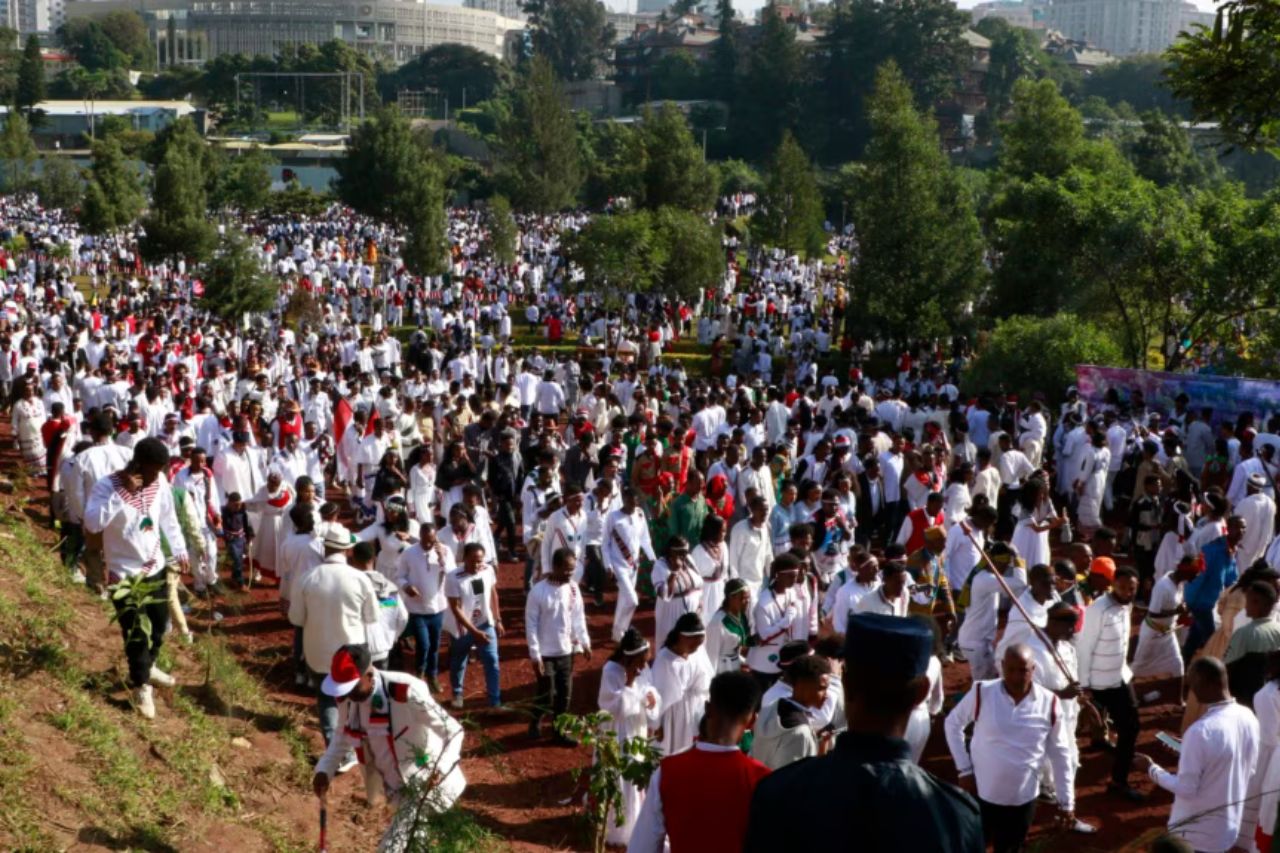
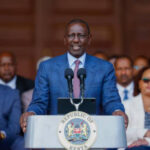



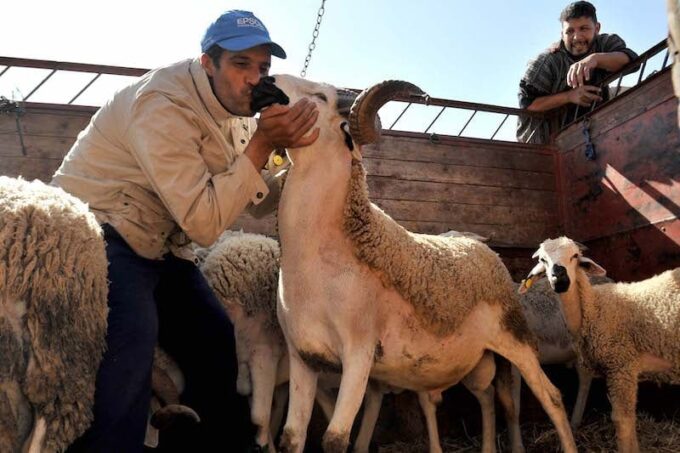
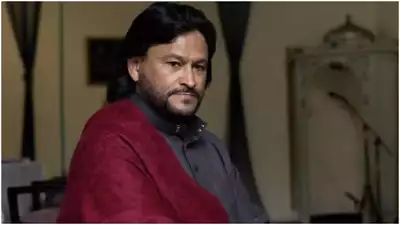
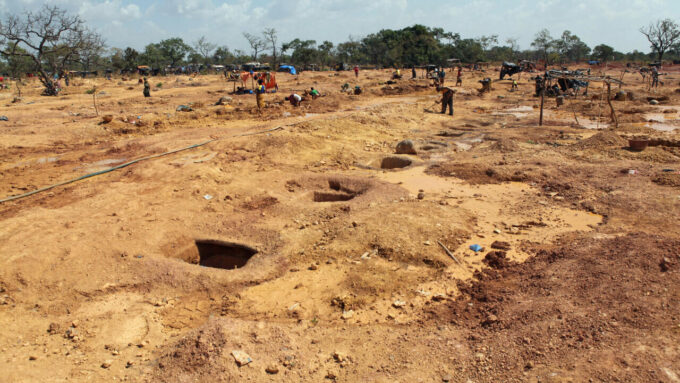
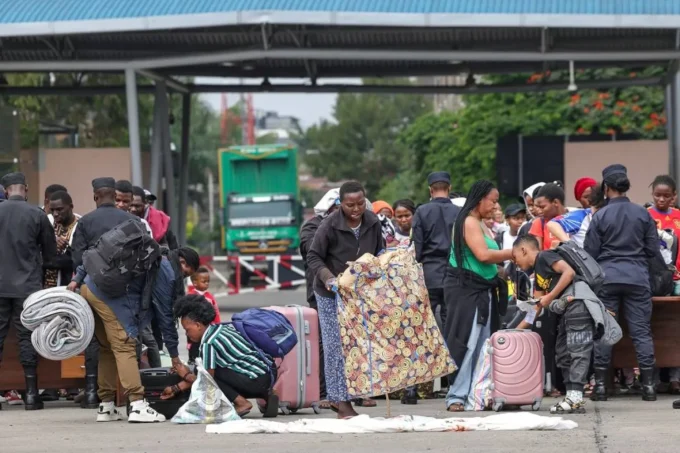



Leave a comment